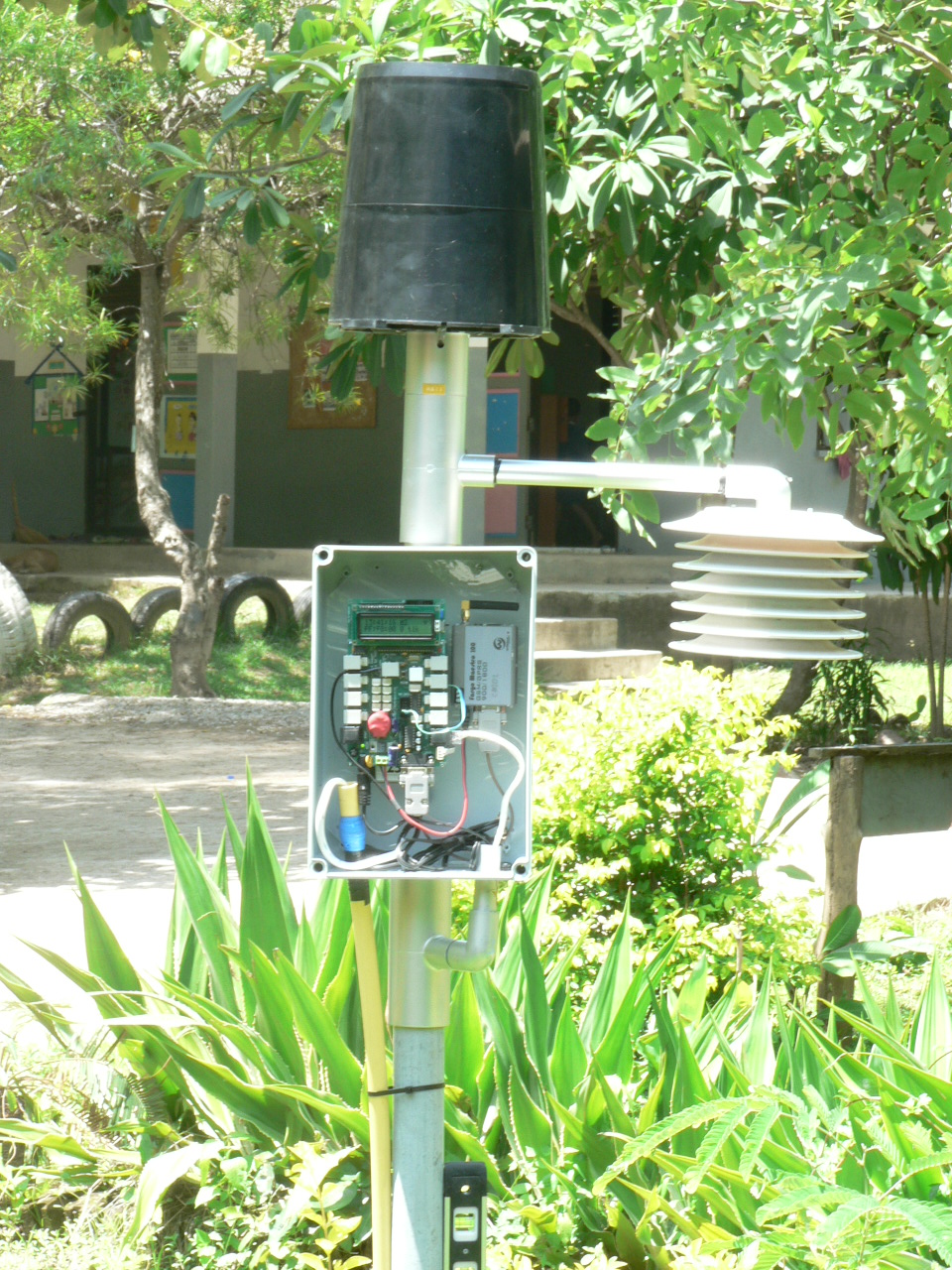Landslide detection: Difference between revisions
(New page: Ban Samkha is located in a valley where nearby mountains are the village's main source of water. Landslides occur naturally in these mountains but problems of deforestation has worsen the ...) |
mNo edit summary |
||
| Line 1: | Line 1: | ||
Ban Samkha is located in a valley where nearby mountains are the village's main source of water. Landslides occur naturally in these mountains but |
Ban Samkha is located in a valley where nearby mountains are the village's main source of water. Landslides occur naturally in these mountains but deforestation has worsen the situation in recent years. Whenever there is heavy rainfall, the village is considered at risk. |
||
Now that children have constant access to the internet via the XOs, they have created a strategy that encourages the children to act as weather guardians. Children will help monitor the rainfall level and alert the village head when it reaches dangerous levels (currently rainfall greater than 80mm/day is considered dangerous.) The village head will then alert the villagers. |
Now that children have constant access to the internet via the XOs, they have created a strategy that encourages the children to act as weather guardians. Children will help monitor the rainfall level and alert the village head when it reaches dangerous levels (currently rainfall greater than 80mm/day is considered dangerous.) The village head will then alert the villagers. |
||
[[Image:Weather station.jpg]] |
|||
This idea has been greatly enhanced through the collaboration with Thailand's Hydro and Agro Informatics Institute. The institute has just installed a weather station in the village. The data collected is available on the web (unfortunately the interface is all in Thai.) Here are some useful examples: |
This idea has been greatly enhanced through the collaboration with Thailand's Hydro and Agro Informatics Institute. The institute has just installed a weather station in the village. The data collected is available on the web (unfortunately the interface is all in Thai.) Here are some useful examples: |
||
| Line 9: | Line 12: | ||
* [http://njob.haii.or.th/CMI/fs.php?type=rain24h_past&date=&month=&year=&st=CMI02&type=rain_acc&submit=%E1%CA%B4%A7 Accumulated Rainfall] |
* [http://njob.haii.or.th/CMI/fs.php?type=rain24h_past&date=&month=&year=&st=CMI02&type=rain_acc&submit=%E1%CA%B4%A7 Accumulated Rainfall] |
||
This project relates to an important and meaningful situation in the local community. As a learning project, it can lead to many new topics. The students could study similar situations that are happening elsewhere (some are devastating.) Similar phenomena such as avalanche in snow mountains |
This project relates to an important and meaningful situation in the local community. As a learning project, it can lead to many new topics. The students could study similar situations that are happening elsewhere (some are devastating.) Similar phenomena such as avalanche in snow mountains or even pyroclastic flows during a volcanic eruption can be look at. They could look into other factors that contribute to a landslide. They could learn about measuring the slope of a hill section. They could study how the forest plays a role in such event. The learning possibility is huge. |
||
Source: [http://village.haii.or.th/vtl/component/option,com_frontpage/Itemid,1/ Village that Learns website] created by [http://www.haii.or.th/ Thailand's Hydro and Agro Informatics Institute]. |
|||
Revision as of 14:08, 3 August 2007
Ban Samkha is located in a valley where nearby mountains are the village's main source of water. Landslides occur naturally in these mountains but deforestation has worsen the situation in recent years. Whenever there is heavy rainfall, the village is considered at risk.
Now that children have constant access to the internet via the XOs, they have created a strategy that encourages the children to act as weather guardians. Children will help monitor the rainfall level and alert the village head when it reaches dangerous levels (currently rainfall greater than 80mm/day is considered dangerous.) The village head will then alert the villagers.
This idea has been greatly enhanced through the collaboration with Thailand's Hydro and Agro Informatics Institute. The institute has just installed a weather station in the village. The data collected is available on the web (unfortunately the interface is all in Thai.) Here are some useful examples:
This project relates to an important and meaningful situation in the local community. As a learning project, it can lead to many new topics. The students could study similar situations that are happening elsewhere (some are devastating.) Similar phenomena such as avalanche in snow mountains or even pyroclastic flows during a volcanic eruption can be look at. They could look into other factors that contribute to a landslide. They could learn about measuring the slope of a hill section. They could study how the forest plays a role in such event. The learning possibility is huge.
Source: Village that Learns website created by Thailand's Hydro and Agro Informatics Institute.
